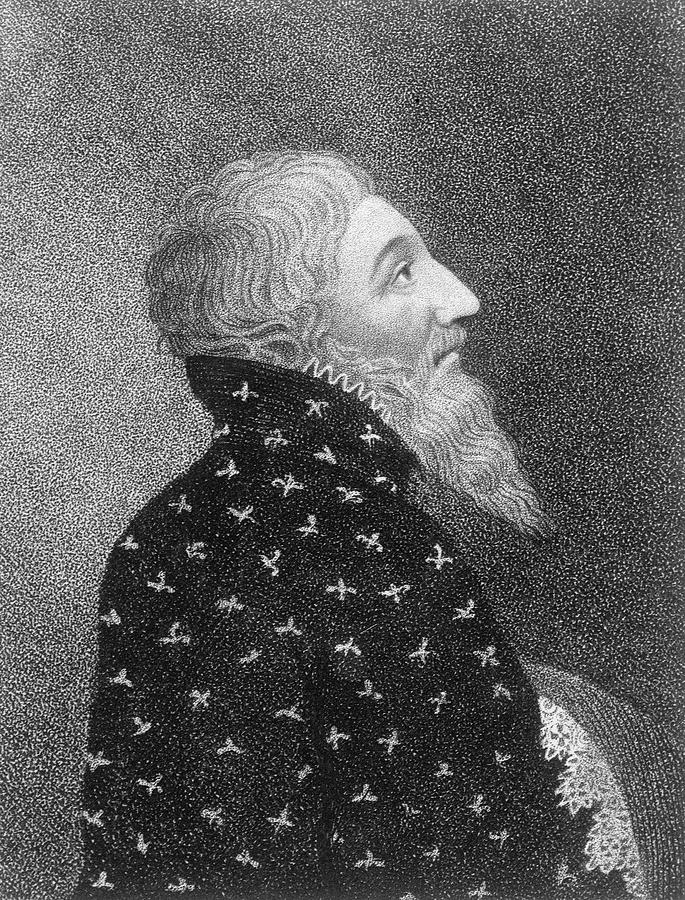Henry Percy - 1st Earl of Northumberland
Henry Percy, 1st Earl of Northumberland, was an English Nobleman and military leader in England during the reigns of Edward III, Richard II, and Henry IV. He was head of the influential Percy Family in Northern England, in a period marked by shifting kingships, border conflicts, and rebellions, with his life ending in battle.

Henry Percy was born on November 10th, 1341, at Alnwick Castle in Northumberland, England. He was the son of Henry de Percy, 3rd Baron Percy, and Mary of Lancaster, daughter of Henry, 3rd Earl of Lancaster.
In 1358, Henry married Margaret Neville, daughter of Ralph Neville, 2nd Baron Neville de Raby. Henry and Margaret had five children: Henry "Hotspur", Thomas, Ralph, Alan, and Margaret. Henry would marry a second time in 1381, to Maud Lucy, heiress of Cockermouth Castle, with no issue. This marriage dramatically increased his landholdings.
Henry Percy held high offices in the administration of northern England for King Edward III. In 1362, he was made Warden of the Marches towards Scotland, granting him the authority to negotiate with the Scottish government. In February of 1367, he was designated to oversee all castles and fortified manors in the Scottish marches. In 1368, his father died, and Henry succeeded him as 4th Baron Percy.
During Richard II's coronation in 1377, Henry was created Earl of Northumberland and briefly given the title of Marshal of England. He was also appointed Admiral of the Northern Seas between 1383 and 1384. The Percys had become one of the most powerful families in northern England and often defended the northern border with Scotland.

In 1397, Richard II elevated Ralph Neville to 1st Earl of Westmoreland. Henry then started to support Henry Bolingbroke and his rebellion against King Richard II. Henry Bolingbroke would force Richard to abdicate the crown, and he became King Henry IV.
During the coronation of Henry IV, Henry Percy was appointed Constable of England and granted the lordship of the Isle of Man. Percy and his son Hotspur were tasked with ending the rebellions of the Welsh and Owain Glyndŵr, but their efforts to make peace with the rebels did not meet the King's approval.
In September of 1402, the Percys fought in the Battle of Homildon Hill, which resulted in the capture of many Scottish nobles. Henry did not want to ransom them, as that would result in their being freed and involved in more quarrels in the future. However, King Henry IV wanted the prisoners sent to him so he could ransom them. The King also failed to pay the Percys what they were due for securing the border, and by 1403, the Percys had had enough and decided to rebel against the King in favor of Edmund Mortimer, 5th Earl of March, and then conspired with Owain Glyndŵr.
The two sides clashed at the Battle of Shrewsbury in July of 1403, where Henry "Hotspur" Percy was killed in battle. His father, Henry, had not yet reached Shrewsbury when the battle occurred and was thus acquitted of treason, but he did lose his title as Constable of England.
In 1405, Percy, Mortimer, and Glyndŵr signed the Tripartite Indenture, which outlined how England would be split among the three of them if they overthrew King Henry IV. Also in 1405, Henry supported the Archbishop of York, Richard le Scrope, in another rebellion against the King, which failed, and Percy fled to Scotland. The King then confiscated his estates in England.
In 1408, Percy returned to England and was once again in rebellion against the King as he headed south. He was stopped at Knaresborough by Thomas de Rokeby, High Sheriff of Yorkshire. On February 19th, 1408, the two sides would meet again at the Battle of Bramham Moor, near Wetherby.
Henry Percy was killed during the battle while fighting a rearguard action as his army was routed. His body was hanged, drawn, and quartered, and his head placed on London Bridge, while other parts of his body were sent to the four corners of the country as a message to anyone wishing to rebel against the King. Eventually, his body parts were returned and buried in York Minster, the same place his son "Hotspur" was interred after the Battle of Shrewsbury.
For his victory and ridding him of Henry Percy, King Henry IV rewarded Thomas de Rokeby with Spofforth Castle, previously owned by the Percy family.
The Nevilles replaced the Percy family as the dominant family in northern England, but the Percys would regain their power and influence during the Wars of the Roses.
